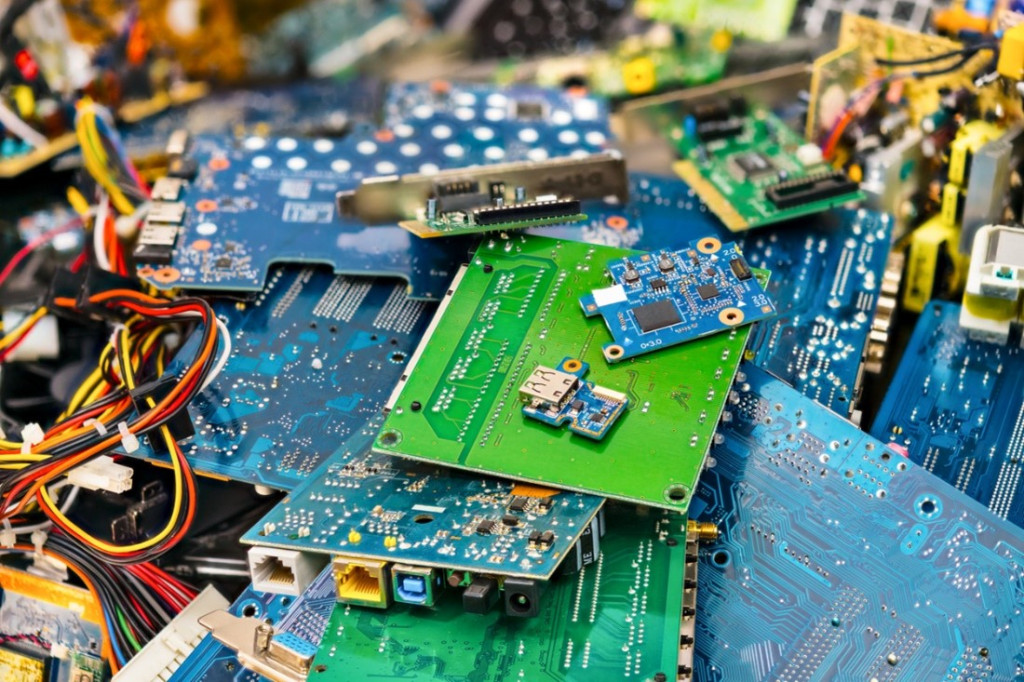As the world becomes more aware of the impact of industrial activities on the environment, there is an increasing need for sustainable practices in all sectors. The electrical industry, in particular, significantly reduces its carbon footprint and promotes eco-friendly practices. One way of achieving this is through the recycling of scrap metal.
At Morecambe Metals, we believe recycling scrap metal is essential to promoting sustainable practices in the electrical industry. So, in this blog post, we will explore the significance of recycled scrap metal across the electrical industry.
Why is Recycled Scrap Metal Important?
Recycling is an important way of contributing to a healthy environment. It reduces the amount of waste in landfills and lowers the need for new mining, which can harm the environment.
Recycling waste metal also saves energy and resources, with large energy savings seen in operations like recycling steel and aluminium. Through conservation, greenhouse gas emissions are decreased, and the air and water are made cleaner. Recycling scrap metal also reduces pollution by minimising hazardous gas releases during the extraction of new metals and improperly disposed of metal waste.
It encourages cost-effectiveness by offering businesses premium products at a discount. Accepting the recycling of scrap metal is a big step in the direction of a future that is more resilient and sustainable.
The Importance of Metal Recycling
The negative impact of metal waste on the environment cannot be overstated. Scrap metal waste can take centuries to decompose; when it does, it releases toxic chemicals that can harm the environment. Recycling scrap metal reduces the amount of metal waste in landfills and reduces the need for new mining, which can damage the environment. For example, recycling aluminium requires 95% less energy than producing new aluminium.
Benefits of Using Recycled Scrap Metal
One of the significant benefits of recycling scrap metal is that it can be melted down and reused without losing its properties. This means metal can be recycled indefinitely, making it a sustainable resource. The electrical industry has been a significant beneficiary of recycled metal, with examples such as copper being a preferred material for electrical wiring. Recycled metal has also produced electrical components such as transformers, generators, and motors.
Designing products with recyclability in mind is also essential in promoting sustainable practices. Manufacturers can reduce the amount of waste that ends up in landfills by creating products that can be easily dismantled and recycled. This approach also promotes the circular economy, where waste is minimised, and resources are kept in use for as long as possible.
Recycled Metal is Cheaper
Businesses can save money by using recycled metal. Because recycled metal is cheaper than new material, less new mining is required, which can be expensive. Successful recycling schemes have resulted in significant cost savings for the industries involved. For instance, the auto industry has acknowledged that recycling waste metal saves millions of pounds annually. The electrical industry can also save money by using recycling initiatives.
The Positive Effect of Recycling
Recycling has many advantageous impacts on the environment and natural resources and can help create a healthier planet for current and future generations.
- Protecting natural resources is one of the main advantages of recycling because it lessens the need for fresh resources like minerals, water, and wood to be extracted to create new items. This safeguards these priceless assets for later use.
- Recycling also reduces the negative disruption and harm done to the natural environment. We can reduce deforestation, river diversion, and the harm or displacement of species by reusing items. Recycling also aids in lowering air, water, and soil pollution.
- Recycling also significantly contributes to lowering energy use and greenhouse gas emissions. When compared to the processes of extracting and refining raw materials, recycling frequently uses less energy. This lessens carbon emissions and lessens the effects of climate change.
Why is Scrap Metal Used in the Electrical Industry?
Metals are widely used in the electrical industry due to their unique properties. Some of the main reasons why metals are preferred in the electrical industry are:
- Good Conductivity: Metals are excellent conductors of electricity, making them ideal for electrical wiring use. Copper is one of the most commonly used metals in electrical wiring due to its high conductivity and low resistance.
- Ductility: Metals like copper and aluminium are also ductile, which means they can be easily drawn into wires and cables. This property makes them ideal for use in electrical wiring and transmission lines.
- High Melting Point: Metals have high melting points, which means they can withstand high temperatures without melting. This property makes them ideal for high-temperature applications like electrical power generation and transmission.
- Corrosion Resistance: Many metals like copper, aluminium, and stainless steel are corrosion resistant. This property makes them ideal for harsh environments where exposure to moisture and other corrosive elements is a concern.
- Magnetic Properties: Some metals like iron and steel have magnetic properties that make them ideal for electrical transformers and motors.
At Morecambe Metals, we offer a wide array of scrap metal recycling services, including scrap metal processing, scrap metal collection, and demolition scrap processing services throughout North West England, covering Southern Scotland, Cumbria, Lancashire, and Cheshire.
Contact us today to learn more about our services and how we can help your business promote sustainable practices.






